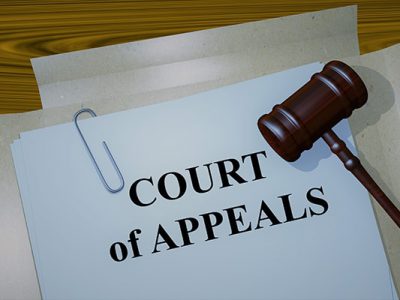People v. Burgos
NY Court of Appeals
Decided on March 17, 2022
Contact a New York Criminal Appeals Lawyer
Issue:
Whether defendant was deprived the constitutional right to choice of counsel where his attorney was suspended from practicing law before the Second Circuit while his attorney represented defendant in New York.
Holding:
The Court of Appeals held that counsel’s failure to disclose his Second Circuit suspension and ongoing reciprocal disciplinary proceedings did not prejudice defendant.
Facts:
Defendant Angelo Burgos was charged with two counts of gang assault in the first degree and four counts of assault in the first degree for a March 2012 attack involving two victims. In November 2013, defendant retained Andres Aranda, an attorney who had represented him in prior criminal proceedings.
On May 15, 2015, the Second Circuit publicly reprimanded Aranda and suspended him from practicing law for 18 months. That court’s suspension order required that Aranda inform all clients with pending cases in the Second Circuit so that they could obtain new counsel. The Second Circuit also required Aranda to disclose the court’s decision “to all courts and bars of which he is currently a member, and as required by any bar or court rule or order.” Aranda disclosed the discipline to the Attorney Grievance Committee of the First Judicial Department in July 2015.
Also in July 2015, defendant waived his right to a jury trial and a bench trial commenced, with Aranda representing him throughout the proceedings. The court rendered its verdict in September 2015, acquitting defendant of the gang assault but convicting him on the court counts of first-degree assault. Defendant was sentenced in February 2016. Two weeks after defendant was sentenced, the Appellate Division imposed reciprocal discipline on Aranda and suspended him from practicing law in New York for 18 months, noting the suspension was “nunc pro tunc to May 15, 2015.”
Afterward, defendant moved pursuant to CPL 440.10 to vacate the judgment, contending that his conviction was unconstitutionally obtained. He argued that he was denied the effective assistance of counsel because Aranda was required to disclose—and failed to disclose— to defendant that Aranda had been suspended from practice before the Second Circuit. He claimed that if he had known of the suspension, he “would not have let [Aranda] continue as [his] attorney.” Supreme Court denied the motion, and on appeal the Appellate Division affirmed, concluding that defendant did not show that counsel’s failure to inform him of the Second Circuit suspension required a new trial.
Analysis:
Defendant’s ‘Constructively Suspended’ Argument
Defendant argued that Aranda’s suspension by the Second Circuit rendered him “constructively suspending” from practicing law in New York. Defendant conceded that Aranda was “technically licensed” while he represented defendant, but he also argued that when an attorney is suspended or disbarred by a foreign jurisdiction for “serious misconduct,” that attorney should be rendered constructively suspended from practicing while reciprocal discipline proceedings in New York are pending. The Court of Appeals rejected this argument, noting that Aranda was licensed to practice in New York at the time he represented defendant. Furthermore, the Court explained that attorneys with ongoing disciplinary proceedings are entitled to due process, including notice and an opportunity to be heard.
Attorney’s Disclosure of Suspension
Defendant contended that Aranda’s failure to inform him of the Second Circuit’s suspension and the pending reciprocal disciplinary proceedings in New York deprived defendant of his constitutional right to choice of counsel. But the Court of Appeals held that no statute, court order, or NY Rule of Professional Conduct required Aranda to disclose either the suspension or the pending disciplinary proceedings to defendant. The Second Circuit required Aranda to disclose this information to defendants before that court, which he did. Indeed, Aranda’s disciplinary proceedings in New York were confidential until they concluded, which occurred two weeks after defendant’s own criminal proceedings concluded. The Court of Appeals held then that defendant was not deprived meaningful representation and Aranda’s failure to disclose the suspension was consistent with the strategic decisions of a reasonably competent attorney and did not prejudice defendant. The order of the Appellate Division was therefore affirmed.
